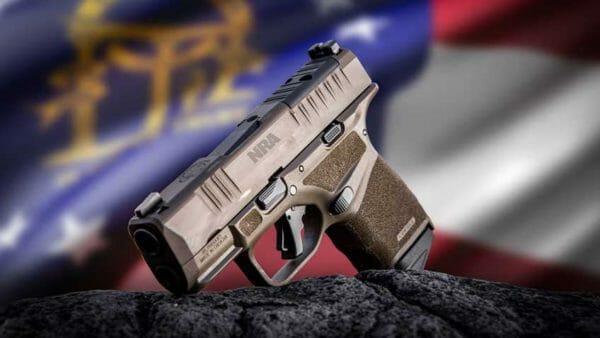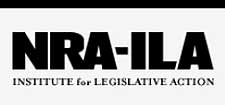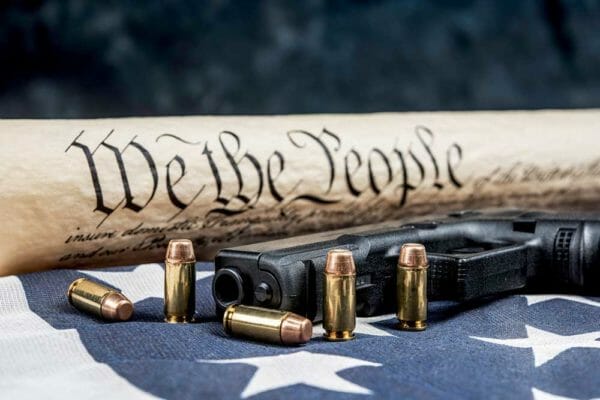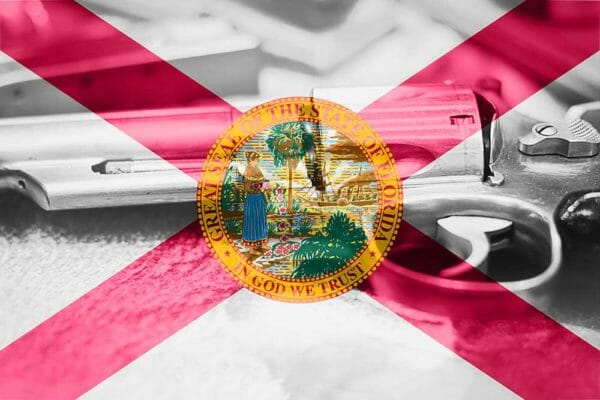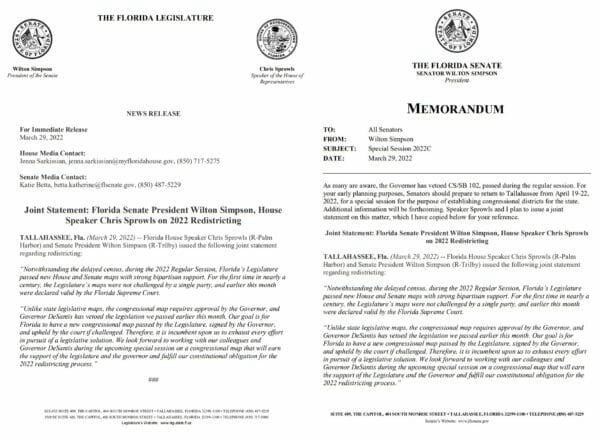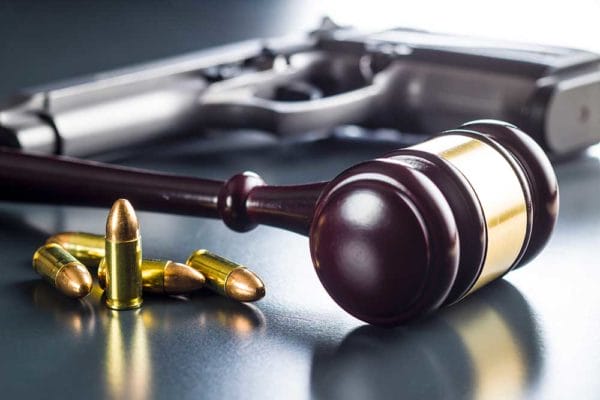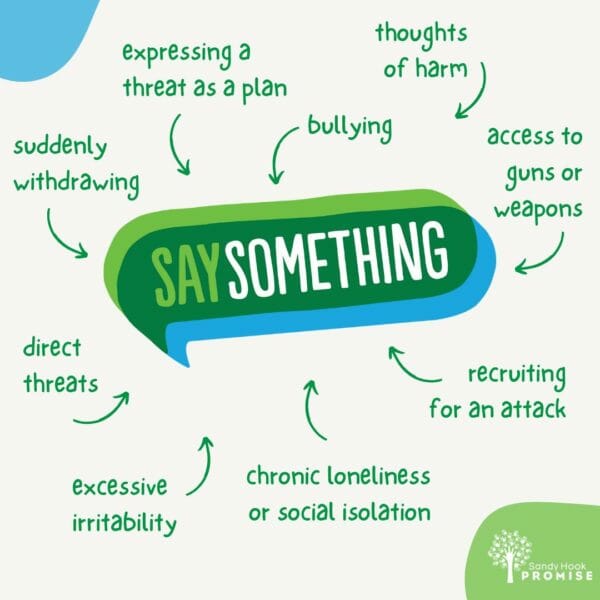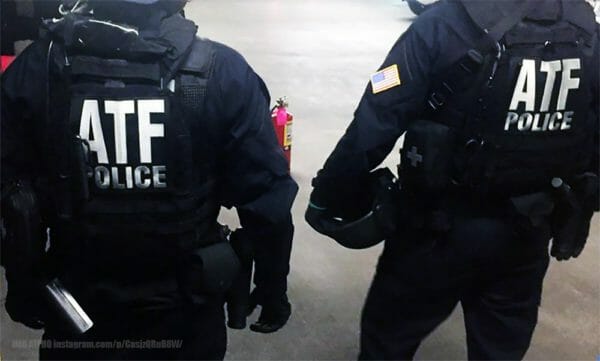
U.S.A. –-(AmmoLand.com)- The subject of any of the three-letter agencies as of late has left a bit of a nasty taste in many freedom-loving peoples’ mouths. Whether there are rumors of not doing proper investigations or evidence of illegal actions, the alphabet soup of executive stormtroopers in the United States have not been making any friends. Yes, there are plenty of great rank and file agents, peace officers, etc. that work for this wonderful country (and the people). However, the leadership, lack of transparency, and overt favoritism to leftist ideals do not paint a pretty picture. What would the “big guy” have to say about favoritism?
What if we were to bring forward some interesting correspondence that popped up in a lawsuit? How about a bit of a lover’s quarrel between the FBI and ATF? That’d be juicy, wouldn’t it?
The lawsuit is still active, with injury claims being called moot, because the ATF just folded in the cited instances. The two agencies, FBI and ATF, failed to come to some sort of an “agreement” during their “who’s got a bigger” contest, leaving the ATF slightly cuckolded in the corner.
Umbert et. al. v. UNITED STATES OF AMERICA et.al. involves multiple applicants that sought NFA items. The applicants seeking relief were all caught up in the NICS system with the FBI recommending a denial concerning the issuance of any NFA tax stamps. Things got murky when they tried to appeal.
During the application process, the ATF relies on the recommendations that come from the FBI NICS check. The nuance here is that the FBI only makes recommendations in these cases to the ATF. They do not make a decision, as would be the case of regular firearm purchases. The FBI is only giving the ATF their results and has no skin in the game. But what happens when there is a denial by the ATF and an applicant wants to appeal that decision? There basically is no suitable appeal process for those seeking relief in these situations.
Looking at a Statement of Facts document that’s part of the suit, there’s some very interesting information included. There are two letters from the FBI to Mr. Curtis W. Gilbert, Deputy Assistant Director, Enforcement Programs and Services at the ATF. The two letters basically tell the ATF they need to tend to their own house and that the FBI is not responsible to do their dirty work.
Excerpts from the 2019 Letter:
This letter is in response to your June 19, 2018 Memorandum regarding the processing of National Firearms Act (NF A) appeals by the FBI Criminal Justice Information Services (CJIS) Division’s National Instant Criminal Background Check System (NICS) Section. The FBI previously stated that the NICS Section is not responsible for processing NF A appeals. In response, you stated that the Bureau of Alcohol, Tobacco, Firearms and Explosives (ATF) “has neither the legal or regulatory authority to process appeals for the correction of erroneous NICS system information as this authority is clearly and unambiguously provided to the FBI.”
Further, you stated that A TF processing of NI CS appeals would be violative of both the NICS Regulations and, likely, the Administrative Procedures Act (APA). On this point, the FBI does not disagree, as the FBI Director is the designated system manager of the NICS. See 28 C.F.R. § 25.3. However, it is the position of the FBI that ATF NFA transfers do not fall within the purview of the NICS provisions of the Brady Handgun Violence Prevention Act of 1993 (Brady Act); (now codified, in part, at Title 34, United States Code (U.S.C.), Section 40901) therefore, application and analysis of the NICS Regulations (Title 28, Code of Federal Regulations (C.F.R.), Section 25.1-25.11) seems unnecessary. In fact, it is the position of the FBI that the processing of any A TF work 1, to include NF A appeals by the NICS Section, pursued due to the denial of a transfer based upon the results of a NICS background check, runs afoul of Federal Appropriations laws and the Anti-Deficiency Acts.2.3
Appeals of NFA denials are not NICS appeals as set forth in the Brady Act.
While the Brady Act provides both administrative and judicial remedies for any person denied a firearm, this process is limited to those persons the NICS has denied a firearm under subsections (s) and (t) of Section 922 of the Gun Control Act of 1968 (GCA), as amended, (18 U.S.C. §§ 921-931). See 18 U.S.C. § 925A and 34 U. S.C. § 4090l(g). In addition, the remedies set forth in the Brady Act are limited to transfers where “licensees” have contacted the NICS prior to a GCA transfer of a firearm. As defined in 34 U.S.C. § 40901(j)(l), the tenn “licensee” does not include the ATF or ATF Director. It is the position of the FBI that A TF NF A transfers do not fall within the purview of the NICS provisions of the Brady Act.
Yes, they just go told they’re on their own. The letter(s) should be read in full, which is near poetry to the eyes of freedom-loving Americans. The FBI points out the failures in the law and further, the ATF.
From a 2020 letter on the same subject:
Notwithstanding the above, for the reasons detailed in the CJIS Division’s June 3 letter, the CJIS Division continues to belive that it is better for the ATF to process all ATF checks itself. The FBI continues to make the search of its systems and the results available to the ATF to perform this work. If, during the processing of a background check or an appeal, the ATF identifies a record in need of updating, the FBI will work with the ATF to ensure the appropriate processes are followed based on the respective FBI system and the owner of the record.
The defendants in the case have moved to moot it. From the attorney representing the plaintiffs, Stephen D. Stamboulieh’s, Memo in Support of Plaintiff’s Motion for a Summary Judgement, he notes that those seeking relief were “granted their certificates to purchase their firearms. This essentially mooted those cases, yet it is apparent that the issues underlying the present action are evading review and are repeating day in and day out.” He caps off what further relief is being sought in his conclusion of the same document.
For the foregoing reasons, Plaintiffs pray that their Motion for Summary Judgment is granted, and that the Court orders Defendants to stop shifting the burden to Plaintiffs to prove a negative, process their appeals, correct their records, and transfer the firearms to the respective Plaintiffs.
The burden should always fall squarely on the shoulders of the government to prove someone’s “guilt” or in this case, ineligibility to purchase or possess a firearm, and or NFA item. Regardless of a quarrel between agencies, the US Government, as a whole, needs to get its house in order on this subject, and not give waste to further delays. In delaying the issuances of any certificate that states the eligibility to purchase a firearm and or NFA item, a person’s rights are being infringed upon. It’s going to only be a matter of time before the subject of suppressors being protected under the Second Amendment becomes more mainstream and guarded as such judicially.
As for now, let’s sit back and revel in knowing that the ATF and FBI might be having a seven-year itch, with one getting the cold shoulder from the other. Couldn’t happen to a nicer agency.
About John Petrolino
John Petrolino is a US Merchant Marine Officer, writer, author of Decoding Firearms: An Easy to Read Guide on General Gun Safety & Use and NRA certified pistol, rifle, and shotgun instructor living under and working to change New Jersey’s draconian and unconstitutional gun laws. You can find him on the web at www.johnpetrolino.com on twitter at @johnpetrolino, facebook at @thepenpatriot and on instagram @jpetrolinoiii .

from https://ift.tt/7UZX1wx
via IFTTT

